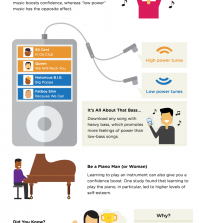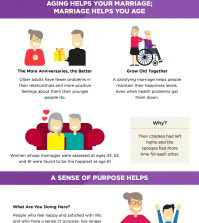- Make It Yourself Lavender Heart-Shaped Bath Bombs!
- 20 Things You Never Knew About “Down There”
- 12 Best Foods For Those Suffering From Arthritis Pain
- 12 Personal Hygiene Mistakes Almost Everyone Makes (Mom Never Told You About #4!)
- 15 Medicinal Plants And Herbs From The Cherokee People
- 12 Mind-Blowing Benefits Of Drinking Coconut Water During Pregnancy
- 12 Outstanding Winter Foods That Won’t Fatten You Up Like A Christmas Turkey
Is There A Correlation Between Creativity And Not Socializing?
Most people would agree that being socially withdrawn and isolated is not a good thing. There are numerous studies now proving that not getting adequate social contact and not have quality relationships with other people can have a detrimental effect on not only one’s psychological wellbeing, but even on your physical health. But some intriguing research has been done which shows that not all loneliness is the same, and that some people may actually benefit from not socializing as much.
What does the research show?
Psychologists have investigated why it is that some people prefer to spend more time with others while others do not, and historically, they have divided this trait in to three different categories.
The first is shyness, which is associated with a lack of confidence. The second is called avoidance which is a term that describes people that simply don’t like socializing. Finally, there is being “unsociable” and it is in this third category that researchers think they may have discovered something new.
Continue to Page 2
A study from the University of Buffalo appears to have found a positive correlation between being unsociable and being creative. The study was led by Julie Boker, an associate professor of psychology who put together a survey where each of the 295 participants was asked about what their motivation for seeking solitude was. Each of the participants ranged from 19 to 31 years of age, and their answers were rated according to two different sets of criteria: The Behavioral Activation System (BAS) and Behavior Inhibition System (BIS). A high BIS score would correspond with behaviors associated with shyness and social anxiety, while a high BAS score would be associated with more socially assertive behaviors. Different BIS and BAS scores would determine whether a person gravitated more toward one of the three forms of social withdrawal than the others.
What Boker and her research team found was that participants whose answers suggested stronger levels of unsociability had much more creative tendencies than those who gravitated toward avoidance or shyness. Furthermore, it was determined that just because someone was classified as unsociable it did not mean that they disliked socializing or went out of their way to not interact with people.
RELATED: Investing In Social Connections Now May Prevent Dementia Later
According to Boker, people who are unsociable “may get just enough peer interaction so that when they are alone, they are able to enjoy that solitude. They’re able to think creatively and develop new ideas — like an artist in a studio or the academic in his or her office.”
By contrast, avoidance and shyness was negatively correlated with creativity. It would seem that these individuals cannot make productive use of their time alone, or at least not as much as the unsociable, because their desire for solitude is in part driven by anxiety or some other negative emotion.
Creativity and Not Socializing… Is this a groundbreaking study?
Perhaps not for some, because for those who identify with these traits, it may well be telling them what they already knew. But in some ways it is quite an important discovery, because for so many years, the majority of people thought of being socially withdrawn as something entirely negative. This study shows that there may in fact be something positive to it. Creativity is an invaluable human trait that makes the world a much more beautiful and interesting place to live in.
This is good news for people who tend to be more introverted, as introversion is sometimes unfairly categorized as a sort of personality flaw.
RELATED: Can Five Little Life Skills Really Determine Your Success, Health, And Social Life?
What’s the takeaway if you fit into the unsociable description here? That’s not necessarily a bad thing! Accept who you are and let your inner creativity shine. It may, interestingly enough, make more people like you and want to be around you.
References:



































